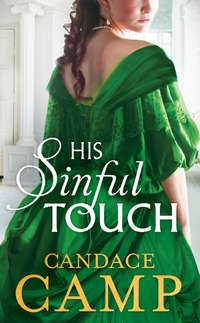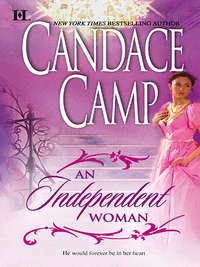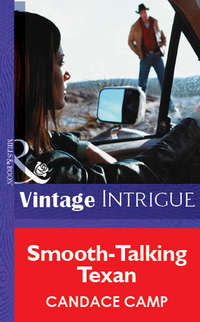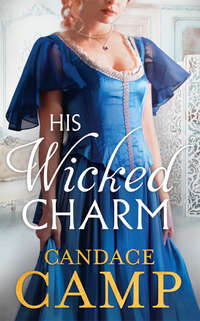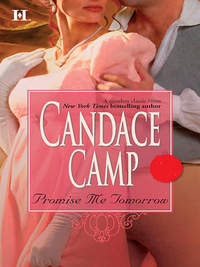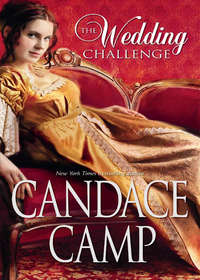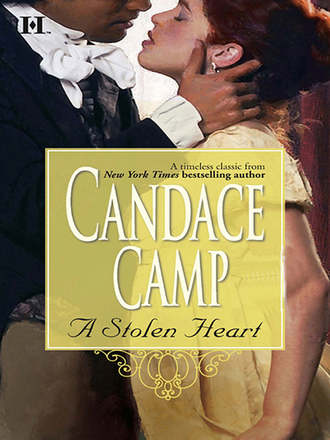
Полная версия
A Stolen Heart
So sunk was he in his gloomy thoughts that Jones did not notice someone had quietly entered the foyer from the opposite end until the man spoke. “Ah. Mr. Jones. Punwati tells me you have brought a guest with you.”
Mr. Jones jumped. “Lord Thorpe!”
Alexandra, who had been squatting beside the chest, tracing the intricate carvings, stood and turned toward the voice. It was all she could do to keep her jaw from dropping. From the moment she had received the letter from Lord Thorpe, she had envisioned him as a crotchety old man, averse to company and probably quite eccentric. She had been sure that once she met him, she could talk her way around his oddities and convince him to let her see his collection. But now, seeing him, she realized that she had been completely wrong.
The man standing at the other end of the foyer was in the prime of his life, no more than in his thirties. He was tall and broad-shouldered, with long, muscular legs, accentuated by close-fitting buff-colored pantaloons and rich, butter-soft brown boots. He was dressed well, but simply. He started toward them, and Alexandra realized with a funny jump of her stomach that Lord Thorpe was not only young, but also quite handsome. His hair was a thick, dark brown, cropped close to his head. He had a sculpted face, with high, jutting cheekbones, an aquiline nose and a squared jaw, the rather stern features softened by a wide, sensual mouth. His eyes were large and intelligent, gray in color and ringed by thick, black lashes that gave them a smoky look. His expression gave little away, but Alexandra thought she detected the faintest bit of humor in his eyes. When his gaze fell on her, the oddest feeling started up deep inside Alexandra, a strange, effervescent, tumultuous sensation she had never experienced before. All thoughts seemed to scatter.
“I’m sorry, my lord,” Jones began awkwardly. “I should not have come here unasked, I know, but I—I was sure you would wish to meet Miss Ward.”
“One wonders why,” Lord Thorpe drawled, his words dipped in sarcasm.
Alexandra, seeing Jones pale at his employer’s words, shook off the peculiar feeling in her midsection and stepped forward, assuming a pleasant, confident smile. “Pray, do not blame Mr. Jones, Lord Thorpe. It is all my fault. He did not wish to bring me at all. It was I who insisted.”
“Indeed?” Thorpe arched one black brow in an expression of polite disdain that had intimidated more than a few people.
Alexandra scarcely noticed. She was far more aware of the fact that his eyes were so light a gray they were almost silver, and that her knees had begun to tremble in a most unaccustomed manner.
“Yes. You see, I believe in meeting the people with whom I do business.”
“Business?” Thorpe looked genuinely puzzled, and he turned inquiringly toward his employee. “I don’t understand.”
“It is Miss Ward with whom I have been negotiating a contract this week—I believe I mentioned it. With Ward Shipping, to transport Burchings Tea to the United States.”
Thorpe looked at Alexandra blankly. “You work for Ward Shipping?”
“Mm. My family owns it, actually. Unlike you, I prefer to keep an active hand in my businesses. While I have found Mr. Jones to be both agreeable and acute, still, I feel that I get a better impression of a company from meeting the owner. Ultimately, all decisions come back to you. Or do I have that wrong?”
“No. I am in charge of my company,” he answered a little wryly. “You, I take it, do not approve of the way I run my business.”
“Well, it is your business, and you may do as you choose,” Alexandra began.
“How kind of you.” Thorpe sketched a satiric bow in her direction.
Alexandra cast him a quelling look and continued. “However, I have always felt, as have my managers, that a business runs more smoothly if the owner takes an active role in it—unless, of course,” she added smoothly, “the owner is not competent to run it.” She ended on a slightly questioning note, casting Thorpe a sideways glance that contained more than a little challenge. She was not sure exactly why—whether it was Thorpe’s arrogant air or a dislike of the unaccustomed response he had aroused in her—but she felt a certain need to set Lord Thorpe in his place.
To her surprise, he let out a short bark of laughter. “And that, I presume, is what you are suggesting about me? That I am incapable of running a business?”
Lyman Jones let out a small groan and closed his eyes.
“Ah,” Thorpe went on, a faint smile hovering about his mouth. “Mr. Jones brought you here so that you could see that at least I am not drooling or locked in a cage in the attic?”
“My lord!” Mr. Jones exclaimed, shocked. “No, nothing like that was ever suggested. I swear to you, it was—”
“Stop teasing Mr. Jones,” Alexandra retorted bluntly. “You know as well as I that Mr. Jones had no wish to bring me here. I was the one who insisted on it. I was not worried that you were completely incompetent. But I do think one can tell a lot about a company by the owner’s personality.”
“And what can you tell about Burchings Tea, Miss Ward?” he asked, the faint smile lingering on his lips. “Now that you have met me?”
“For one thing,” Alexandra said tartly, “I have a better understanding of why your employees are scared of you.”
“Scared of me!” The smile disappeared at her words, and he looked nonplussed.
Lyman Jones covered his face with his hands, certain that all was lost, so he did not see the short, considering glance Lord Thorpe shot at him.
“Yes. Oh, they do not tremble at your name, but Mr. Jones’s reluctance to bring me over here was quite obvious. Why? I wondered.”
“I think I can answer that,” Thorpe replied coldly.
Sebastian, Lord Thorpe, had been amazed when Punwati had told him that his business agent was at the door with a young woman in tow, and he had been sufficiently intrigued that he had decided to see them. He had not known what to expect, but it had certainly not been to find this tall, black-haired beauty in his entryway examining his property. Even more unexpected had been the sudden, hard jolt of desire that had shot through him at the sight of her. She was dressed in a demure sprig muslin day dress, but its high waist emphasized the voluptuous curve of her breasts, and its soft folds could not conceal the long, slender legs beneath it. Her skin was touchably soft and smooth, and her full lower lip fairly cried out to be kissed. Thorpe was not a man who was immune to feminine charms, but he had learned his lessons early and hard, and his passions were usually kept under strict control. It had been some time since he had felt such a swift and deep response to a woman.
As he listened to her speak, he had been by turns amused, bemused and irritated, and underneath it all had lain the hot, heavy thrum of arousal. Miss Ward was unlike any woman he had ever met, and Thorpe was a man who appreciated the unusual. But now, with her last statement, she had decisively pushed him over the line into the realm of anger. How dare this upstart American question his running of his business or imply that he terrorized his employees?
“Mr. Jones is well aware that I value my privacy,” he said, his jaw set and his eyes flashing silver. “I am not accustomed to every person who does business with my company showing up at my home.”
“Mm. Yes, I can see that you believe yourself superior to the rest of us humans.”
“I beg your pardon.” Thorpe stared. Each statement this woman made was more outrageous than the last.
“That quality generally does not make one a pleasant companion,” Alexandra said blithely, ignoring the thunder beginning to grow in his face. “However, as you know, that is not my primary concern. My concern, of course, is how does this attitude affect Burchings Tea?”
“Ah, yes, Burchings. For a moment there I thought we had wandered far afield.”
“I am inclined to think that your belief in your superiority would carry over into your company, that you would not allow an inferior product or any sort of base dealing that would reflect badly upon you,” Alexandra decided.
“Thank you,” he responded sardonically. “I think.”
“Also, the awe and even fear in which your employees regard you would ensure that they pay careful attention to the details so as not to incur your displeasure. Sometimes such fear can be so extreme that it has the opposite effect—people are so worried that they make more mistakes than they would normally. However, having seen that you are more sarcastic and biting than in a rage over Mr. Jones having invaded your privacy, along with the fact that Mr. Jones was willing to try what I asked even though he thought you would not like it, leads me to think that your wrath is not such that it renders your employees terrified and therefore useless.”
“Then you approve of my business?” he asked, tight-lipped. “I am indeed honored at the encomium.”
“I am sure you are being sarcastic,” Alexandra replied. “However, the truth is that you should be pleased. There are those who value my opinion in business.”
“The United States must be quite different.”
“Yes, it is. I believe we are more inclined to value honesty.”
“Bluntness, I would say. A lack of tact, even.”
“I find that tact is generally not a valuable commodity in doing business. I would much rather know where I stand. You, I take it, prefer to remain in the dark?”
For a moment Lord Thorpe simply stared at her. Then he chuckled, shaking his head. “My dear Miss Ward, you almost leave me speechless. Do you conduct all of your business in this fashion? I am surprised that you have any customers.”
Alexandra smiled back at him, finding it difficult not to respond to the softening of his face. “No,” she replied frankly. “You seem to raise my hackles more than most. However, I do find that, being a woman in business, I have to spend an inordinate amount of time arguing with men before they will accept me on equal terms.”
“Equal?” His lips curved up. “I would think that would be too paltry for you. I would imagine utter subjugation would be your goal.”
“Oh, no,” Alexandra retorted blithely. “I, you see, have no inclination toward arrogance.”
“A direct hit,” Thorpe murmured. It occurred to him that the purpose of this odd American’s visit had been accomplished, and that the interview should be at an end. But he found himself curiously reluctant to send her on her way. He wasn’t sure whether she more annoyed or aroused him, but he realized that he wanted her to stay.
He hesitated for an instant, then said, “Now that we have met, Miss Ward, perhaps you would care to have a cup of tea with me.” He turned a bland gaze toward Lyman Jones’s astonished face. “You, too, of course, Jones—unless you have pressing matters at the office?”
“Oh, no, sir,” Jones replied, blushing with pleasure at the honor of taking tea with his lordship. “That is,” he added hastily, realizing that his words might sound wrong, “of course I have things to do. There are always things to do at the office. What I meant was that today I think everything will run quite well without me for an hour or so. I’m ever so grateful—it is such an honor—if you’re sure, of course.” His voice trailed off uncertainly.
“Of course he is sure,” Alexandra said firmly, coming to the floundering man’s rescue. “I doubt that Lord Thorpe is ever anything but sure.” She turned to Thorpe. “Thank you, my lord. Tea would be most welcome.”
Thorpe rang for his butler and ordered tea in the blue saloon, then led his visitors down the hall and into a gracious room, the walls of which were decorated in a delicate blue-and-white wallpaper above the wainscoting. It was an airy room, the heavy drapes pushed aside to let in the afternoon sun, and it was furnished not in the heavy, dark woods that Alexandra had found common in London, but in a wickerwork that gave the room a look both informal and exotic. The foreign air was heightened by the lush carpet in a design of stylized flowers and vines, and the rich, jewel-tone patterns of the chair cushions. A trumpeting elephant carved out of ivory stood on a small table, and on the wall hung a series of small, colorful paintings.
Alexandra drew in her breath and went to the paintings. “Are these Rajput?” she asked, referring to a kind of manuscript illustration of Hindu epics that had flourished in India in earlier times.
Mr. Jones looked blank, and Lord Thorpe’s eyebrows shot up in astonishment. “Why, yes, I started collecting them when I lived in India. Do you know Indian art?”
“I have seen very little of it,” Alexandra confessed, “but I am quite interested in it. I have read descriptions, of course, of the bright colors and the patterns, and I have seen some drawings made from them, but never the actual thing.”
At first she studied the paintings intently, unaware of Thorpe’s gaze lingering on her. Then she turned and caught him watching her, and she flushed. There was something about the look in his eyes that made her feel suddenly warm all over. She glanced away quickly, casting about for something to say to cover her reaction. “I, ah, have purchased a few things—a small jade Buddha and, um, a Paisley shawl, of course, and a few ivory carvings, but Indian things are somewhat rare in the United States.”
“Perhaps, after tea, you would like to see some of my collection?”
Alexandra’s face lit up, causing Thorpe to draw in his breath sharply. “Oh, yes, I would like that more than anything else.” She sat as the butler entered with the tea tray and set it on a low table, but she continued to talk excitedly. “I have a confession to make. That was one of the reasons I bullied Mr. Jones into bringing me here today. I was hoping to catch a glimpse of some of your Indian treasures. I have heard so much about your collection….”
“Indeed?” Thorpe studied Alexandra, wondering what bizarre thing would come out of her mouth next. He had never met a woman who enthused over his Indian objects, except perhaps for a luxurious Paisley shawl or a spectacular piece of jewelry.
“Oh, yes, I wrote you, in fact, a few months ago, when I knew I was going to be in London, asking you if I could see your collection, but you turned me down flat.”
“I did? How rude of me.” He frowned. “But I don’t remember…. No, wait, there was a letter from some fellow in the United States, but I thought—wasn’t it Alexander Ward?”
“Alexandra. People often make the mistake. They don’t expect an enthusiast of art objects to be a woman.”
“At least not to be writing letters to strange men and trying to set up appointments.”
“And what would you have me do?” Alexandra asked, her dark eyes firing up. “Ask my uncle or cousin to write a letter for me, as if I were incapable of writing a coherent letter myself?”
“It is not a question of your competence, Miss Ward, but a matter of taking care of, of protecting, a woman.”
“From what? The rudeness of a letter such as yours, denying me admittance?” She chuckled. “I was not pleased, of course, but it did not send me to my bed in a state of despair and shame. I have been told no before, I assure you.”
“I find that hard to believe,” Thorpe retorted, grinning. “Well, please allow me to make up for my rudeness by showing you as much as you would like to see.”
“That would be the entirety, I’m sure.”
They talked a little while they drank their tea and ate the small cakes and biscuits that accompanied it. It was general talk, about the weather and London and the state of Massachusetts, where Alexandra lived. He inquired how she was enjoying her visit, hoping that it was not all business, and she dutifully related the sights she had seen and the things she had done. They spoke of Burchings Tea and of her own company, though Alexandra could see in Thorpe’s face that he found it odd to speak of such things with a woman. She wondered if he usually talked to women only about the weather and such and concluded that he must find it dull, indeed.
Mr. Jones returned to his office soon after tea was finished, assured by Lord Thorpe that he would see Miss Ward home in his own carriage. Thorpe offered his arm to Alexandra, a faint, almost challenging smile on his lips. Alexandra slipped her hand into the crook of his elbow and tilted up her chin, tossing back the challenge, although she was not entirely sure what it was.
“You know,” Thorpe said in a low, conversational tone, “your staying and walking through these rooms with me by yourself is not recommended behavior for a young lady.”
“Oh?” Alexandra rounded her eyes into a look of great innocence. “Are you in the habit, then, of attacking defenseless young women in your home?”
“Of course not. Although I would hardly call you defenseless.”
“Then I have nothing to fear, have I?” Alexandra went on coolly, “You, being a gentleman and so concerned about protecting women, will doubtless see that no harm comes to me.”
“You’ve the tongue of an adder, my dear Miss Ward.”
“Why, what have I said, my lord?”
He cast her a look heavy with irony and abruptly turned into a room, pulling her in with him. Gripping her upper arms, he looked into her eyes, so close to her that his face filled her startled vision. His bright silvery eyes bored into hers, and she could feel the heat of his body, the power of his hands on her arms. She was intensely aware of his mobile mouth hovering only inches above hers. She could not move.
“You know, sometimes even a gentleman can be pushed beyond his control by a beautiful young woman.”
Alexandra had the wild thought that he was going to kiss her right there, and she realized with a start of amazement that the thought was more exciting than scary. “But I am sure that you never lose control,” she replied, annoyed at the shakiness of her voice.
“It would be foolish to count on that. If you had talked to the good ladies of London, you would know that I am considered capable of almost anything. I am, my dear naïve Miss Ward, the black sheep of my family. Not one to be trusted alone around young ladies.”
“Then it is a good thing that I am not a young English lady, but an American woman who learned early on how to discourage unwelcome attentions, is it not?”
“Indeed.” He leaned a little closer. “And would my attentions be unwelcome?”
Alexandra drew in her breath sharply, her heart hammering within her chest. She found it difficult to think, with his eyes staring into hers.
“No.” The word came out breathily as she swayed toward him.
CHAPTER TWO
“NO!” ALEXANDRA REPEATED, HORRIFIED at what she had been about to do. She jerked away from Lord Thorpe, moving farther into the room as she tried to bring her rapid breathing back to normal. “What—what nonsense you talk!”
Thorpe followed her into the room, but he did not touch her again, as she had feared. She felt curiously let down. Sternly, she tried to focus on the room. It was large and furnished entirely in teak. From the desk and the shelves of books behind it, Alexandra identified it as Lord Thorpe’s study. An ornately engraved rifle hung on one wall, and below it hung a sword with a wide hilt made of ebony and steel, also engraved. In one corner stood an unusual shirt of chain mail armor with metal plates across the chest and a long mail neck guard hanging down around the helmet on three sides. The edge of the neck guard was bordered in red velvet, and gold inlay was worked across the chest plates.
“Indian armor?” Alexandra asked with real interest, going over to study it. She tried not to think about how his hands had felt on her arms or the way she had yearned to press herself against him.
“Yes. It belonged to a Mogul officer from the last century.” Lord Thorpe’s voice was as calm as if the moment in the doorway had never happened. “The rifle was a present to me from a rajah.”
“Really?”
He nodded. “I happened to be with him on a hunt and shot a tiger that had him targeted for lunch. He gave me the rifle and several trinkets in gratitude. The trinkets turned out to be sapphires and rubies.”
“You’re joking.”
“No. I sold them and bought my first piece of land.”
“A tea plantation?”
Thorpe nodded, somewhat surprised to find himself telling Alexandra the story of his early years in India. He had told very few people anything about what happened to him there. But, somehow, looking into Alexandra’s huge brown eyes, alive with interest, he felt little hesitation. She might know as little about the place or people as any of the other young ladies he knew, but one thing he was certain of was that her interest was genuine. It occurred to him that perhaps there was something to be said for Miss Ward’s policy of frankness. “I spent every bit of profit I made investing in land. Eventually I bought a piece that connected the rest of my plantation to the sea. It had a lovely white beach. I was walking along it one day and stepped on this dull round stone, but when I lifted it up, I saw that it wasn’t like other stones. It was an unpolished ruby.”
“On the sand?” Alexandra asked in astonishment.
He nodded. “Yes. About the size of a gold sovereign. I’ve never been so shocked in my life.” He smiled faintly, remembering the heat of the sun on his shoulders, the sound of the surf crashing nearby, the pounding excitement in his heart as he had stared at the stone. “A stream ran through there, joining the sea, and it had washed the ruby and several other stones down, depositing them on the beach. I found some other small rubies and a number of sapphires. So I started mining the stream and the area around it. And that is how the tea plantation became my secondary business.”
“So you own a ruby mine?”
“Mostly sapphires. But I sold it before I moved back to England. I kept the plantation because I had a very good manager, but the mine—well, I find, like you, that things don’t run very well without one’s personal effort.” He shot her an amused glance.
“You have lived a very exciting life.” It was no wonder, she thought, that a dangerous air clung to him.
Thorpe shrugged. “I have done what I had to do.”
Alexandra raised a brow. “You have to admit that you have done things few of the rest of us have—lived in exotic lands, shot tigers, found gemstones littering the sands….”
He chuckled. “It sounds more exciting than it seemed at the time. Then it mostly seemed like heat and sweat and trying to escape death.”
“That is what my uncle says about the War. He says everyone always wants to think of it as romantic and brave and daring, but mostly it was dirt and sweat and fear.”
“The War?”
“Yes. You know. That small war thirty-odd years ago in America…”
“Ah, yes.” He quirked a smile. “The conflict in the colonies. Fortunately, I wasn’t in the tea business at the time.”
Alexandra chuckled. “You take, I see, a large view of world affairs.”
Thorpe went to his safe, unlocked it and took out two packets of soft cloth. He laid them on his desk and unwrapped the first one. On the velvet lay an old necklace. Seven separate pieces of enameled gold dangled from the circlet by separate strings of emerald beads.
“It’s beautiful. It looks quite old.” Alexandra leaned closer.
“It is. It’s called a satratana. Each of these sections represents a planet in the Indian astrological system.”
“Fascinating,” Alexandra murmured. “It is such beautiful workmanship.”
He unrolled the other cloth, revealing a necklace of startling beauty made of sapphires and diamonds, with a large sapphire pendant hanging from the center.
“Are these from your mine?” Alexandra asked.
Thorpe suppressed a smile. Every other woman who had seen the necklace had practically salivated over it, caressing the jewels and holding it up to her throat. He supposed it should not surprise him that Miss Ward seemed more interested in the background of the jewels.
“Yes.” Perversely, he found himself wanting to see the jewels around her neck, though she had not asked.
“Was this a gift to your wife?”


